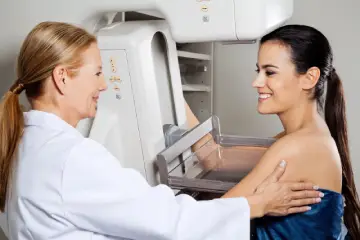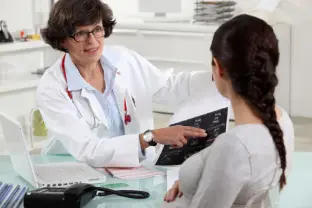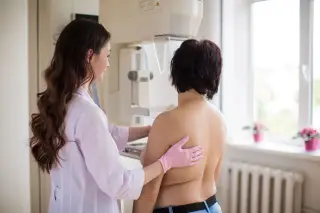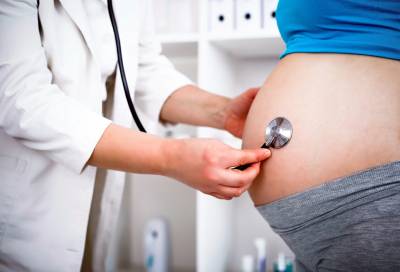Endometriosis
Endometriosis Q & A
What is endometriosis?
Endometriosis occurs when tissue that normally lines the inside of the uterus begins to grow outside it, affecting other organs such as the ovaries, fallopian tubes, or pelvic lining. Endometriosis can appear on areas including:
- Outside of the uterus
- Ovaries
- Cervix and vagina
- Fallopian tubes
- Bowel or rectum
- Bladder
You may also develop endometrial tissue on the tissues that hold the uterus in place.
What are the symptoms of endometriosis?
Endometriosis causes a number of unpleasant symptoms. These include:
- Pain in the lower back and pelvis
- Pain during intercourse or after sex
- Painful bowel movements or pain during urination
- Infertility
- Stomach problems
- Bleeding or spotting between your cycle
These symptoms occur because the endometrial tissue located outside the uterus continues to act like it’s inside the womb, thickening, breaking down, and bleeding with each menstrual cycle. It bleeds and attempts to shed every month, but doesn’t have an easy point of departure. It can block your fallopian tubes, cause ovarian cysts, lead to inflammation, and create scar tissue that results in pelvic pain. It can prevent you from getting pregnant.
How is endometriosis diagnosed?
The team at The Women’s Center reviews your symptoms and looks for evidence of endometrial tissue during a pelvic exam. Imaging tests, such as an ultrasound, can reveal ovarian cysts that suggest endometriosis, too. Laparoscopy, a minimally invasive diagnostic surgery, can reveal endometriosis that’s not otherwise possible to detect.
How is endometriosis treated?
Although endometriosis has no permanent cure, its symptoms can often be effectively managed, and many individuals are able to overcome infertility to achieve a healthy pregnancy.
Medication is often the first course of treatment. When pregnancy is not your goal, hormonal birth control options like pills, injections, or hormonal IUDs can help regulate your menstrual cycle, lessen discomfort, and minimize heavy bleeding.
For those hoping to conceive, your doctor at The Women’s Center may suggest treatment with GnRH (gonadotropin-releasing hormone), which temporarily halts the production of hormones that trigger ovulation. Essentially, the GnRH puts you into temporary menopause to reduce your endometrial symptoms. You stay on the medication for a short time, and when you stop taking it, your endometrial symptoms may be reduced enough that you can get pregnant.
Surgery is another option, especially when hormones don’t provide relief or infertility persists. Patches of endometrial tissue are located during laparoscopy and removed, hopefully eliminating the cause of your inability to get pregnant.
If you have symptoms of endometriosis, make an appointment with The Women’s Center today by calling or booking online.
We Provide You With The Best Services

Mammogram
Learn
More
Routine mammograms are the best way to find breast cancer early when it’s most treatable. The expert OB/GYN team at...




